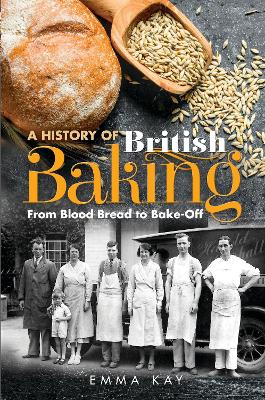
annieb123
Written on Aug 30, 2020
A History of British Baking is a survey course of baking throughout British history - and how it shaped and defined the culture. Due out in late 2020 from Pen & Sword on their History imprint, it's 224 pages and will be available in hardcover format.
The author writes with an accessible and engaging style. The introduction covers the genesis of the book, defining the scope and relevance - what's "British", what's "baking"? How indepth (the author asked) should the technical/chemical/physical study of baking be? What was relevant? I found this introductory musing quite interesting as it gave a sort of insider look at the genesis and shaping of the entire book. (I always read introductions and forewords and often find them invaluable and relevant to the rest of the reading, certainly true in this case).
I found the actual book a bit scattered occasionally. It was sometimes difficult to see the progression of thoughts as the author flitted from one subject to the next. There is an overarching chronological timeline from medieval baking, progressing through the Tudor & Stuart periods, to the Georgians, and on to the modern era however which gave some structure.
There are some historically period recipes reproduced here for things varied (and delicious sounding along with some rather alarming ). The inclusion of period recipes for mooncakes, meat patties, roqaq (like matzoh) and more add some interest and will be fun to reproduce and try, but by far the emphasis is on the history behind the development and blending of the cultures which make up Britain.
The book is meticulously annotated throughout. The author has cited both period and modern scholarly research to support the narrative. There are numerous chapter notes, and an index. The chapter notes alone will keep keen readers going for ages.
The author has a casual academic style of writing; accessible and careful, with proper annotation, but not overly convoluted or impenetrably difficult to read. She manages to convey a wealth of information without being pedantic or preachy. I really enjoyed reading this historical catalogue of how closely food is intertwined with place, with social development and expansion, and with the people who live/d in Great Britain.
This would be a great choice for libraries, local historians, food historians, period reproduction cooks, Bed & Breakfast/hospitality, or for fans of British cuisine.
Five stars. It's abundantly clear that the author has poured prodigious effort and careful academic research into this tome. I can't imagine there's much left unanswered about Britain's culinary traditions. I felt very much enlightened after reading it, anyhow.
Disclosure: I received an ARC at no cost from the author/publisher for review purposes.
